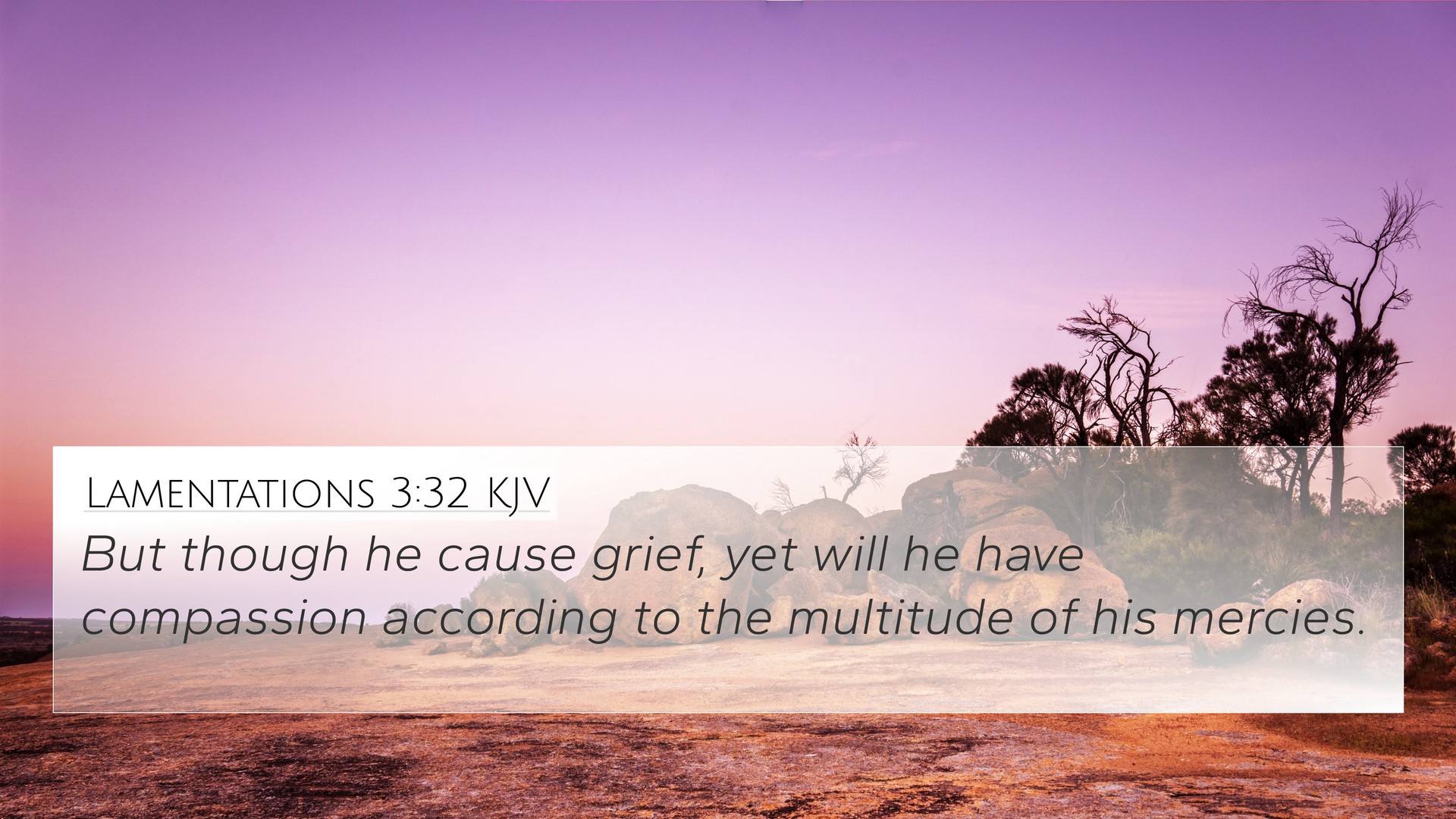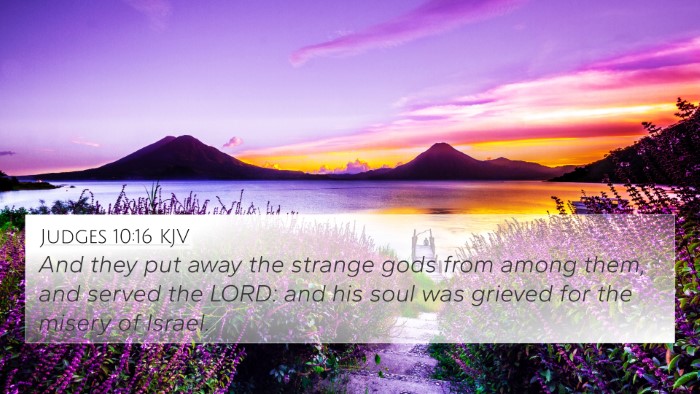Lamentations 3:32 - In-Depth Analysis and Commentary
Bible Verse: Lamentations 3:32
"But though he cause grief, yet will he have compassion according to the multitude of his mercies."
This verse from Lamentations encapsulates a profound theological truth about God's character and His response to human suffering. As we explore the meaning of this verse, we can draw insights from several public domain commentaries, namely those by Matthew Henry, Albert Barnes, and Adam Clarke, to understand its implications.
Key Themes and Insights
-
Divine Sovereignty and Compassion:
Matthew Henry emphasizes that God, though sovereign and capable of causing grief, ultimately remains compassionate. The grief mentioned here refers to the consequences of sin and disobedience, yet God's compassion is inherent in His nature.
-
The Nature of God’s Mercy:
Albert Barnes points out that the mercy of God flows from His character. His willingness to have compassion surpasses the judgments He may impose. This highlights a dual aspect of God’s nature: He is just, but He is also merciful.
-
Hope in Suffering:
Adam Clarke notes that even in trials and suffering, believers can find hope. The 'multitude of his mercies' indicates that, regardless of the pain, God's compassion is always available to His people.
Cross-References and Biblical Connections
To deepen our understanding of Lamentations 3:32, we can look to various Bible verse cross-references that resonate with its themes:
- Psalms 30:5: "For his anger lasts only a moment, but his favor lasts a lifetime; weeping may stay for the night, but rejoicing comes in the morning." This verse reinforces the temporary nature of God's anger contrasted with His everlasting mercy.
- Psalms 103:8-9: "The LORD is compassionate and gracious, slow to anger, abounding in love. He will not always accuse, nor will he harbor his anger forever." This passage highlights the mercy of God towards those who have sinned.
- Isaiah 54:8: "In a surge of anger I hid my face from you for a moment, but with everlasting kindness I will have compassion on you," says the LORD your Redeemer. Here, God’s commitment to mercy is showcased even after moments of judgment.
- Hosea 11:8: "How can I give you up, Ephraim? How can I hand you over, Israel? How can I treat you like Admah? How can I make you like Zeboyim? My heart is changed within me; all my compassion is aroused." This passage illustrates God’s struggle with showing compassion despite His righteous anger.
- Luke 6:36: "Be merciful, just as your Father is merciful." This New Testament verse calls believers to emulate God’s mercy, reinforcing the theme presented in Lamentations.
- 2 Corinthians 1:3-4: "Praise be to the God and Father of our Lord Jesus Christ, the Father of compassion and the God of all comfort, who comforts us in all our troubles." This New Testament passage emphasizes God's character as the source of compassion and comfort during suffering.
- Romans 5:8: "But God demonstrates his own love for us in this: While we were still sinners, Christ died for us." This highlights the depths of God’s mercy in providing salvation despite human failings.
Implications for Believers
The implications of Lamentations 3:32 for believers are profound. Understanding that God causes grief yet is merciful encourages a healthy perspective on suffering. It reminds believers that:
- Suffering Has a Purpose: The grief one might face could be a form of discipline or a teaching moment to draw closer to God.
- God's Compassion Is Unfailing: No matter how grave one's situation is, God’s compassion is assured. This can be a source of comfort during difficult times.
- Encouragement to Extend Mercy: Believers are called to reflect the character of God by showing mercy to others, especially those who suffer.
Application in Daily Life
As individuals reflect on Lamentations 3:32, it serves as a beacon in times of distress, reminding them of the following:
- Prayer for Understanding: Seeking God in prayer for clarity during tough times allows believers to connect with His merciful nature.
- Joy in Salvation: Knowing that the trials faced in life are momentary compared to the eternal joy of being in God’s presence offers hope.
- Fellowship and Community: Sharing experiences of grief and mercy with fellow believers reinforces faith and establishes support systems in the body of Christ.
Conclusion
In conclusion, Lamentations 3:32 encapsulates the beauty of God’s character—His duality of causing grief as a response to sin yet pouring out compassion beyond measure. As we delve into connections between Bible verses and utilize tools for Bible cross-referencing, a comprehensive understanding of Scripture becomes accessible to all believers.














